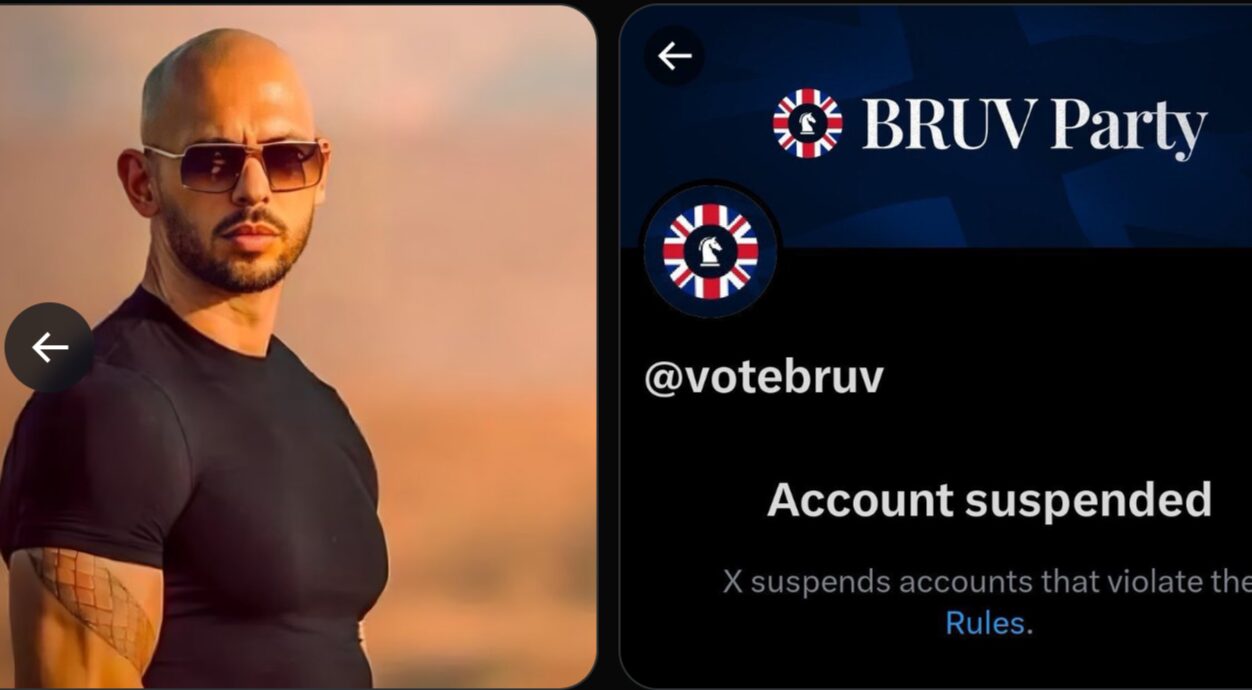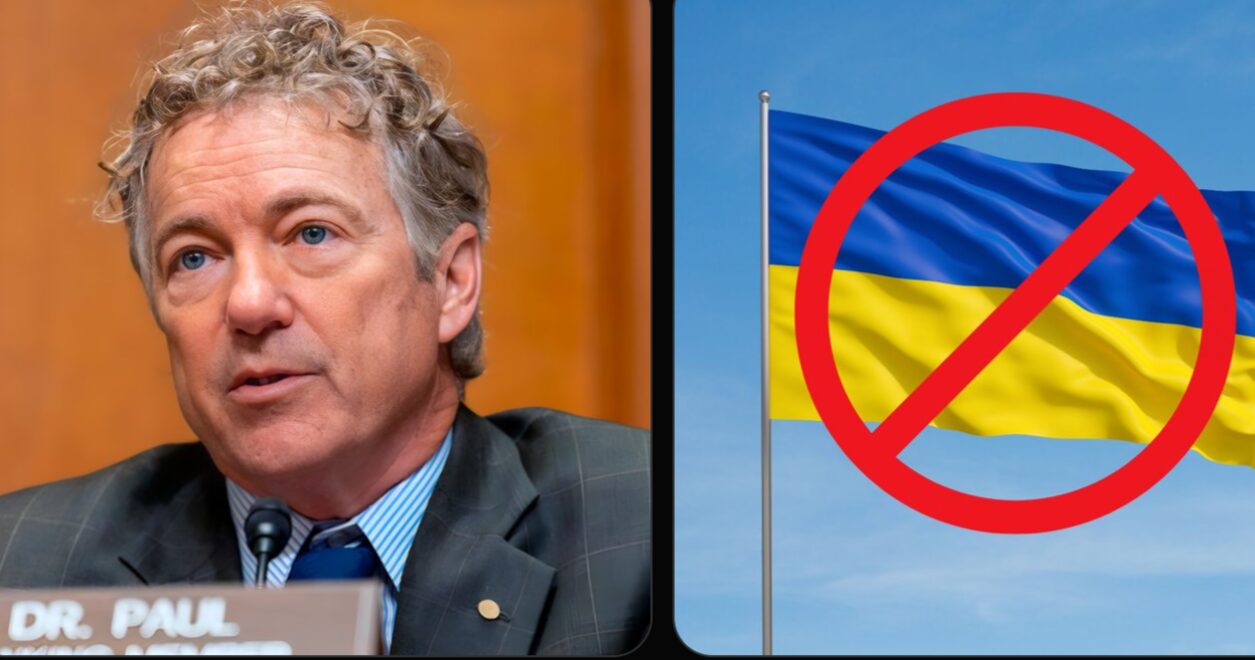X suspends Andrew Tate’s BRUV Party account
X Suspends Andrew Tate’s BRUV Party Account: What It Means for Social Media and Free Speech
In a move that has caught the attention of both supporters and critics, social media platform X (formerly Twitter) has suspended the BRUV Party account associated with controversial internet personality Andrew Tate. The suspension has sparked heated debates on topics like censorship, freedom of expression, and the role of social media platforms in moderating content. This latest development adds to the ongoing discussion about the boundaries of online discourse and the accountability of both influencers and platforms in today’s digital age.
Who is Andrew Tate?
Andrew Tate is a former kickboxing world champion turned social media influencer, known for his outspoken and often controversial opinions. He has garnered a significant following, particularly among younger audiences, through platforms like X, Instagram, and TikTok. Tate’s content often includes discussions on topics such as masculinity, wealth, success, and personal development, but his views have been widely criticized for being misogynistic, divisive, and inflammatory.
Tate’s rise to prominence has been marked by numerous instances of social media bans and account suspensions. His controversial remarks have led to his removal from several major platforms, including Facebook, Instagram, and YouTube. Despite this, Tate has maintained a significant online presence, often using alternative platforms and backchannels to circumvent these bans.
The BRUV Party Account Suspension
The suspension of the BRUV Party account on X is another chapter in the ongoing saga of Andrew Tate’s controversial presence on social media. The BRUV Party is a brand and online community that Tate has used to promote his personal brand, ideologies, and lifestyle. The account served as a platform for Tate’s followers to engage with his content, share his messages, and participate in online discussions.
While the exact reason for the suspension has not been officially confirmed by X, many speculate that it stems from violations of the platform’s community guidelines. X, like other social media platforms, has a set of rules that govern user behavior, prohibiting hate speech, harassment, and the spread of misinformation. Given Tate’s history of violating these standards, it’s likely that the BRUV Party account was suspended for content that went against X’s policies, whether due to inflammatory posts, offensive language, or the promotion of harmful ideologies.
What Does This Mean for Social Media Regulation?
The suspension of Andrew Tate’s BRUV Party account brings to light important questions about how social media platforms regulate content and handle controversial figures. In recent years, there has been increasing scrutiny on the role that social media companies play in shaping public discourse. On one hand, platforms are often criticized for allowing harmful content to flourish, while on the other hand, they face pressure to protect users from abuse, misinformation, and hate speech.
Tate’s suspension raises the issue of how platforms balance freedom of expression with the responsibility to create a safe environment for users. Supporters of free speech argue that banning accounts like Tate’s stifles important conversations, especially those that challenge mainstream narratives. They claim that individuals should have the right to express their views, no matter how controversial, without facing censorship from corporations.
On the other side of the debate, many believe that platforms like X have an ethical obligation to moderate harmful content, especially when it promotes violence, hate, or discrimination. Critics of Andrew Tate’s rhetoric argue that his views are not only offensive but dangerous, especially when they influence impressionable young people. For these critics, suspending accounts like BRUV Party is a necessary step in ensuring that social media does not become a breeding ground for harmful ideologies.
The Impact on Andrew Tate’s Influence
The suspension of the BRUV Party account represents a significant blow to Andrew Tate’s ability to directly engage with his followers on X. However, Tate has a long history of circumventing platform bans, using alternative platforms and channels to continue spreading his messages. His loyal supporters are often quick to find ways around restrictions, whether through the use of VPNs, backup accounts, or other platforms that may be more lenient in their content moderation.
Tate’s suspension on X could also have a broader impact on his online influence. While his direct presence on mainstream platforms is increasingly limited, his reach may still extend through articles, videos, and discussions that are shared across different corners of the internet. It’s also possible that the suspension could fuel his narrative of being persecuted by “the system” or “the elites,” further solidifying his position as a martyr for free speech among his followers.
Nevertheless, the suspension is a reminder of the power that social media companies hold in shaping public figures’ visibility and reach. Platforms like X can dictate who gets to speak and who gets silenced, and this power has real-world consequences on individuals’ careers and reputations.
The Role of Free Speech in Online Communities
At the heart of the debate surrounding Andrew Tate’s suspension is the issue of free speech. While social media platforms provide individuals with a space to express their views, they also operate within the boundaries of their own guidelines and policies. These policies often conflict with broader notions of free speech, leading to complex discussions about the limits of online expression.
Free speech advocates argue that social media platforms should be neutral spaces where all viewpoints, including controversial ones, can be freely discussed. They claim that users should be able to engage in open dialogue without fear of censorship, even if some of those views are unpopular or offensive. This perspective is grounded in the belief that a healthy democracy depends on the free exchange of ideas, no matter how uncomfortable they may be.
On the other hand, those who support content moderation argue that platforms should not be required to host harmful or abusive content. Social media platforms are private companies, and as such, they are entitled to enforce their own rules regarding what can and cannot be shared. From this perspective, content moderation is not censorship but a necessary mechanism for maintaining a safe, respectful, and constructive environment for all users.
Moving Forward: Will Other Platforms Follow Suit?
As social media platforms continue to grapple with the complexities of content moderation, it’s likely that more high-profile suspensions like that of Andrew Tate will occur. The suspension of BRUV Party serves as a reminder that platforms like X are willing to take action against accounts that violate their guidelines, especially when it comes to promoting hate or harmful ideologies.
This trend may inspire other platforms to reevaluate their own policies and take a more active stance in moderating content. As the conversation around free speech and online regulation continues to evolve, the future of social media may be shaped by an ongoing balancing act between fostering open expression and maintaining a safe, respectful online environment.
Conclusion: The Fine Line Between Free Speech and Moderation
The suspension of Andrew Tate’s BRUV Party account on X underscores the difficult position that social media platforms find themselves in today. While the desire to protect free speech remains a fundamental value, there is also a need to regulate harmful content that can have real-world consequences. The debate over censorship, free speech, and content moderation is likely to continue as platforms like X strive to find the right balance between these competing priorities.
Ultimately, the suspension serves as a reminder that social media platforms have the power to shape public discourse, for better or for worse. Whether it’s viewed as a necessary action to protect users or as an overreach of corporate authority, the fallout from Tate’s ban will likely have lasting implications for the future of online speech and the responsibilities of those who govern these platforms.

















Post Comment